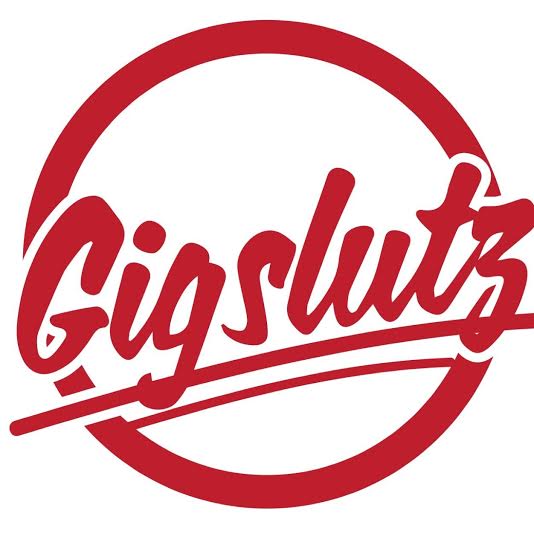What makes a great protest song? Decent lyrics and worthy sentiments alone aren’t enough – the music also needs to cut the mustard. Great protest songs have a defined purpose; they’re not limited to providing simple commentary or merely bleating on about how shit things are in general. The best have the power to inspire change or challenge accepted notions and behaviours; they spit rage and fury over their subject matter and give voice to those without one. The songs below don’t fuck about – they address specific issues, rather than banging on about general concerns like the futility of war or the tragedy of famine (go and listen to Bob Dylan for that). The artists who made them don’t claim to have the answers – that should be someone else’s job. They understand that music is never a panacea for the world’s ills, but instead an instrument to be used to shout about things that matter.
Billie Holiday – ‘Strange Fruit’
America was a strange place to be in the 1930s. Strange on the one hand; deadly and unforgiving on the other. As a popular nightclub singer in New York, Billie Holiday had more opportunities than some for getting this song into the public consciousness, but that’s hardly saying much: New York or not, Holiday was an African American woman singing about lynching and brutality in the Deep South in an era when at least half her own country didn’t welcome a divergence of political opinion. It took three attempts and a breakout clause in her Columbia contract before she was even able to record it. Today we’re used to applying terms like ‘haunting’ and ‘evocative’ to any half-bit, down-tempo pop song with reverb on the synthesiser, but with ‘Strange Fruit’ neither are a step too far. What it would otherwise lack in contrast it more than offsets by being totally beguiling from start to finish, not least from Holiday’s effortlessly beautiful voice. It remains one of the most chilling and resonant tracks ever recorded – inside and outside of its political undertones. @PeterCary1
The Jam – ‘Going Underground’
1980 began with the UK wracked by Cold War worries and still reeling from the ‘winter of discontent’. Society, seemingly, was in steep decline as a recession bit deep like a Rottweiler. “Let Labour’s Orwellian nightmare of the Left be a spur for us to dedicate with a new urgency our every ounce of energy and moral strength to rebuild the fortunes of this free nation,” said Thatcher as she took office. But unemployment stood at two million in 1980, a situation that fomented social discontent and widespread rioting across Britain. It was also the year that saw Paul Weller pen ‘Going Underground’. “You choose your leaders and place your trust/As their lies wash you down and their promises rust.” These were words to foreshadow a darker period to come. The following 24 months saw Thatcher taking Britain into a war with Argentina over the Falkland Islands, while at home deindustrialisation continued apace. All in the name of progress, of course. Weller wrote of braying sheep on his TV screen and summed up what all right-minded individuals felt when he sang that he was going underground. Not beating a retreat, but rather changing tack: “I want nothing this society’s got,” he sang; it was the moment to concentrate on personal politics, to look inward and draw strength from character, culture and community. In 2015, what has changed? With the country yet again trapped in the jaws of a recession, as the royal bunting is once more strung out across the land, nothing, it seems, save the arrival of a gadgetisation that pervades every inch of our lives. Weller prophesied it right in 1980: “You’ve made your bed, you better lie in it”. Indeed we have. @JasonAHolmes
Depeche Mode – ‘The Landscape Is Changing’
In 1983 (seven years before the Green Party formed) Depeche Mode included ‘The Landscape Is Changing’, a song about the impact of industrialisation on the planet earth, on their politically driven album, Construction Time Again. Written by Alan Wilder, the song is not an ambiguous track; the sentiments and sentences are clear: “Acid streams are growing ill across the countryside”. It’s a call out to the listener to “take good care of the world”. Though it doesn’t offer a solution, it calls for a change in our attitude towards our surroundings. It wasn’t the first ‘green’ track, of course, but in the early 1980s, green issues didn’t seem to be on the minds of many musicians. You only need to look at the hairstyles and the mammoth amounts of hairspray needed to hold them in place to confirm this (ozone layer, anyone?). ‘The Landscape Is Changing’ resonates more in this decade, in a time when the Green Party is gathering momentum and the impact that we have on our planet can no longer be ignored. I would like to think that songs like this have contributed to the development of our awareness on such important issues. @MaryBHand
The Specials – ‘Nelson Mandela’
A band who changed the face of music forever, The Specials were a key player in the 2tone movement of the 1980s and leading ambassadors for equality and social change. Each song in their extensive canon is an insightful piece of social commentary, and remains every bit as relevant now as the day it was first recorded. Although 1984’s ‘Nelson Mandela’ is an ultimately upbeat, Latin-African Ska ditty, its anti-apartheid message is serious and sincere. This contrast between subject matter and melody appears to be a result of Jerry Dammers writing the tune before the lyrics, and was key to the success of the song; its celebratory vibe and jazzy African beat making it the unofficial anthem and slogan for the international anti-apartheid movement. The song’s message is clear and it undoubtedly helped to build the momentum against apartheid, whilst rejecting Margaret Thatcher’s accusation that Mandela was a terrorist. ‘Nelson Mandela’ is now heralded as one of the most pivotal and heartfelt protest songs in history; it inspired and motivated millions to join the anti-apartheid movement in the years leading up to Mandela’s freedom, and today stands as a fitting and celebratory tribute to the man who became a figurehead for human rights. @marimindles
S*M*A*S*H – ‘I Want to Kill Somebody’
S*M*A*S*H arrived in 1993 with the outstanding ‘Lady, Love Your Cunt’, inspired by Germaine Greer’s treatise The Female Eunuch. The following year saw the 15th year of Tory rule with no end in sight, a time before the arrival of Tony Baloney, the beacon of the soon-to-be ‘Britpop’, the C(o)unt of Cool Britannia with its artificial memories and false consciousness. This 1994 single is an agit-punk attack on the then frontbench, reeling off the candidates on the hit-list, the architects of neo-liberalism: Thatcher, Archer, Heseltine, “especially Gill Shepherd” who’s got “an appalling unemployment record”. Singer Ed Borrie (the/now/ever) declaims “Whoever’s in power I’ll be in opposition”, illustrating an anarchic apathy with the ‘system’. Although this less-than-three minute spleen-venting was available for one day and banned by the radio, it nevertheless got into the Top 40, a heavily censored version on a Sunday evening adorning the airwaves. Subversion for pudding. The song was updated in 2014 to include the current stooges; different faces and names, same policies, same shit. @dissapointon
Bill Fay – ‘War Machine’
Songsmith Bill Fay reappeared with new material in 2012 after an absence of 41 years. This heartstring wrencher (from new album Who is the Sender?) parallels human affairs with the law of the wild, the survival of the fittest as a metaphor, transposing the brutality inherent in the animal kingdom to the barbarism meted out by our world’s governors with vested interests in artillery and bloodshed. The coda optimistically cries for a time without human bloodlust and senseless killing machines. As overheard at the latest confab: Rule 1. The “goodies” are allowed arms, the “baddies” must be destroyed by any means necessary; Rule 2. U.N.-official arms trading. Who sold them these abhorrent tools? “We absolutely did not”; Rule 3. Deterrent is protectionist, whereas W.M.D. is aggressive; Rule 4. The war message must be controlled and maintained within. The message will not be questioned. Anything that does is to be rendered “conspiracy theory” until any point when it then becomes an “act of transparency” on our part; Rule 5. Framing and terminology is paramount. We suffer losses, “enemy combatants” are collateral damage. Celestial, hymnal and utterly heartbreaking, this song encapsulates Wilfred Owen’s “Futility of war”. @dissapointon
Killer Mike – ‘Reagan’
Last year Killer Mike, one half of acclaimed rap duo Run the Jewels, appeared on CNN following the unrest in Ferguson that flared up from the killing of the unarmed Michael Brown by a US policeman, who was later aquitted. Killer Mike’s father was a police officer, which lends him an objectivity arguably absent in songs such as NWA’s anti-Establishment rant ‘Fuck the Police’. ‘Reagan is a more contemporary, considered and reflective concept for a hip-hop track. Mike talks of the shift and the consummation of the gangsta rap movement by the economic system of capitalism: “Talkin’ bout our cars and imaginary mansions, we should be indicted for bullshit we incited”. He goes on to make a much larger, and arguably conspirative statements about the cornered minorities involved in the war on drugs (for more on this watch the enthralling and heartfelt documentary The House I Live In), Simultaneously, the American prison system and the Reagan administration’s blatant lies (sampled word for word within ‘Reagan’) are dissected by Killer Mike, as he outlines what has happened to young black men since the 80s and the Reagan era. The animation in the video is also incredibly engaging and furthers Killer Mike’s point – the Establishment targets those caught up in this systemic and endemic cycle. @georgebosssin
John Grant– ‘Glacier’
I love John Grant’s music; I don’t think there is anyone out there writing quite like him. To dip a pen into a well of pain (relationship break up, HIV diagnosis) and to write something as bittersweet as he does is an immense skill. I originally thought ‘Glacier’ was a song of fortitude and stoicism. Then I saw the video, and it all clicked into place like cosmic Lego. ‘Glacier’ is about being gay, being proud of it and accepting that ultimately, one’s own pain creates beauty (“It is a glacier moving through you”). It’s a song directed at godbotherers, who he completely obliterates with another of his songs, ‘JC Hates Faggots’. It’s a beautiful end to the Pale Green Ghosts album, almost an elegy to the end of an era of protest, where one human’s love/lust for another was somehow seen as disgusting. Homophobia is still alive, unfortunately, but ‘Glacier’ shows that standing strong and holding your belief like a candle, ultimately illuminates the darkest of places. @KevMcCready
Sleaford Mods – ‘Jobseeker’
“So Mr Williamson, what have you done in order to find gainful employment since your last signing on day?” “Fuck all.” 21 years ago ago, Morrissey captured the empty achievement of looking for a job (and then findng one) in ‘Heaven Knows I’m Miserable Now’; now another voice has articulated the bleak nature of unemployment with similar levels of empathy and wit. Over Andrew Fearn’s deceptively simple minimalist beat, Jason Williamson captures the hopelessness of life on the dole without resorting to romanticised kitchen sink clichés: “Jobseeker, can of Strongbow, I’m a mess/Desperately clutching onto a leaflet on depression supplied to me by the NHS.” At a time when the Conservatives’ manipulation of employment statistics has masked the rise of zero-hours contracts and low pay, and when the Labour Party manifesto has replaced the words ‘working class’ with ‘working people’, ‘Jobseeker’ explores the gilded cage of looking for a job with a greater insight than anyone currently touting for your vote on 7th May. @sng_paul
Kendrick Lamar – ‘The Blacker the Berry’
The most significant protest song of recent times in hip hop is arguably Kendrick Lamar’s ‘The Blacker the Berry’. Taken from the album To Pimp a Butterfly, this song captures the frustration felt by African Americans at a time when police brutality on black people in America is at the forefront of the media, due to incidents such as the shooting of Michael Brown and the death of Freddie Gray. Back in 1992, the aquittal of four white police officers in the Rodney King trial triggered the LA Riots, which inspired another powerful protest song, ‘The Day the Niggaz Took Over’ on Dr Dre’s legendary album The Chronic. More than two decades later, Lamar’s song attacks authority at its core. With a charged up and thumping beat, it gives an energy of hyped up aggression, displaying fierce intelligence within the wordplay and a chorus that features reggae artist Assassin expressing African American frustration. While many people in the UK might draw parallels with the killing of black father Mark Duggan in Tottenham in 2011 (which sparked nationwide riots) this comparison is problematic; each case was markedly different. However, it does provide an insight into the feelings of black disenfranchisement on either side of the Atlantic: “I mean, it’s evident that I’m irrelevant to society/That’s what you’re telling me, penitentiary would only hire me.” @HiphopWriter






